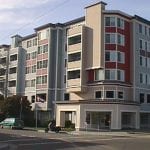The Bay Area is facing many of the most urgent land use and growth questions in recent history. The Silicon Valley boom, aided by the nine-year expansion of the national economy, has sent residential and commercial real estate values soaring, and has overburdened the region’s aging and disconnected transportation infrastructure. Predictably, transportation and housing have emerged as the Bay Area public’s top concerns in the last few years.
Yet the projections show little improvement. By 2020, regional traffic congestion is expected to increase nearly 250 percent. Air quality will worsen as transit ridership declines. Under current trends, almost 200,000 acres of open space and agricultural land will be developed, while older urban areas will remain neglected. Suburbs will be filled with endless strip malls, subdivisions, and congestion. Access to jobs, services and housing for the region’s least advantaged residents will decrease.
Several organizations that understand the interconnectedness of transportation and land use problems, and their environmental and social impacts, came together in September 1997 to form the Bay Area Transportation and Land Use Coalition.
Coalition members believe that current development patterns do not have to be our destiny. Instead, the region can refocus public investment to serve and revitalize existing developed areas; design livable communities where residents of all ages can safely walk or bike; promote developments that links housing, jobs, and services to transit; and create greenbelts that preserve remaining open space.
Building on our history of alternative transportation advocacy, in 1998 Urban Ecology joined the Bay Area Transportation and Land Use Coalition’s campaign to shape the Metropolitan Transportation Commission’s 1998 Regional Transportation Plan update. In an addendum to the 1998 RTP, the Commission enacted one of the Coalition’s policy recommendations, which was to shift $375 million within the 20-year plan to cover budget shortfalls of several public transit systems.
Since that victory, the Coalition has grown to more than 65 environmental, social equity, and transit advocacy groups regionwide.





